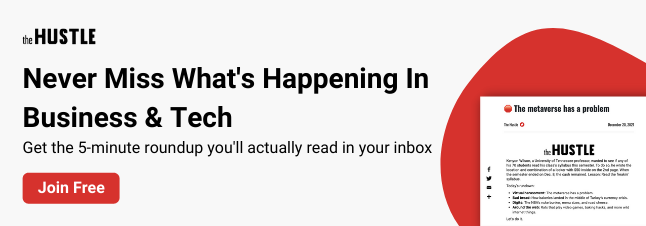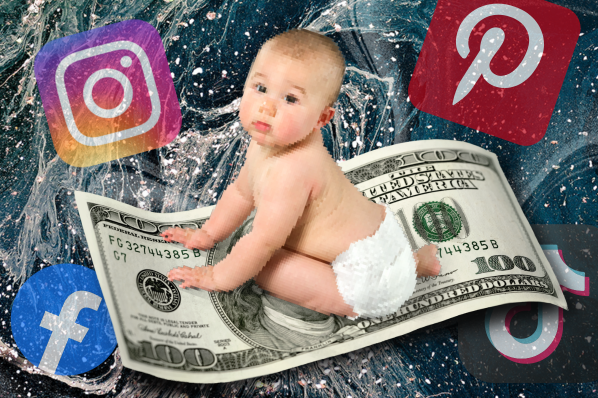In the not-so-distant past (2012, to be exact), egg freezing was still considered an “experimental” treatment. For many, it sounded like the stuff of sci-fi movies, rather than a realistic family planning option.
ee95.jpg)
But over the last 11 years, egg freezing has become a more popular route for those who want the option to have children someday, but not today. According to the Society for Assisted Reproductive Technology, the number of women freezing eggs rose from 7,193 in 2016 to 12,438 in 2020.
That number might be far greater, though, if it weren’t for the steep cost associated with the procedure. A single cycle of egg freezing can cost anywhere from $8k to $20k, and involves multiple costly steps, from fertility testing and hormone injections to egg retrieval and incubation.
While some states have laws requiring insurance companies to cover infertility treatment, that’s often only for medically indicated egg freezing (AKA when a person is undergoing medical treatment or has a medical condition that would limit their fertility later). Elective egg freezing is most often not covered, leaving those looking for affordable fertility preservation options left in the lurch.
That’s where egg-freezing startups come in. Companies are working to make the process of freezing eggs more accessible from all angles — whether through lowering costs, simplifying processes, or making the procedure a built-in part of an employee’s benefits package.
In the eyes of Lauren Makler, the CEO and co-founder of Cofertility, cost was the biggest hurdle to overcome.
Cofertility, founded in 2022, approaches the problem through a dual-pronged business model: Customers can choose to freeze their eggs as they normally would, or they can elect to “split,” donating half of their eggs to a family in need and freezing the rest for themselves, for free (if they meet clinical requirements for donation).
Traditional egg donation is done in exchange for cash compensation, which Makler says can range anywhere from $8k to $100k. But she saw that configuration was only hurting donors and prospective families.
“The compensation piece is actually very off-putting to a lot of women. In turn, intended parents who need a donor have fewer options,” she says. “We wanted to take cash compensation out of the equation.”
While families matched with donors cover the costs of the retrieval process, the lack of cash compensation drastically lowers the cost of securing donor eggs. For the donors who choose to split, they are able to freeze half of their eggs for their own use entirely free of charge and store them for 10 years (after that, storage is no longer free).
Ultimately, Cofertility is striving for an egg freezing and donation model that is more accessible on both sides, and which chips away at the stigmas associated with the process.
“I think it’s amazing that fertility is becoming part of the mainstream conversation,” says Makler. “It’s less taboo than it ever was.”
Over at Lilia, CEO and founder Alyssa Atkins is working to not only make the price of egg freezing more accessible, but also the process itself. Founded in 2019, Lilia acts as an egg-freezing concierge service that walks members through the often daunting process, securing them a lower price along the way.
Lilia says it cuts ~$6k off the price of freezing eggs. It charges a flat fee of $9.5k in San Francisco, Los Angeles, and Chicago, $10.5k flat in New York City — and storage in any city is $840 per year. The company lowers the price mainly by removing medication waste (paying for medicine you don’t actually need) and negotiating discounts with vetted providers.
The company also lowers the barrier to entry “by letting you skip annoying administrative hoops,” says Atkins. “You just pick your start date and put the rest of the process on autopilot while we’re your quarterback and advocate.”
Atkins notes that the rise in demand for egg freezing is in large part due to the fact that more companies are covering some of the costs for employees.
That’s thanks to companies like Maven, a platform that brings women’s and family health care benefits to employers. The company, which has over 450 clients today, offers more than just egg-freezing benefits — it covers everything from fertility care and family planning to maternity and menopause care.
“Employers are coming to us because they’re seeing this need and demand among their employee base,” says Chris Hicks, the SVP of employer growth.
Employees can access Maven through their employers to get unlimited access to its telehealth platform and care advocates. For egg freezing, a user could meet with a Maven advocate before being referred to one of its approved clinics. Throughout the egg-freezing process, the user would have access to a host of telehealth specialists, like reproductive endocrinologists and psychologists.
“Egg freezing is a very physically and emotionally taxing process,” says Hicks. “Maven’s mission is not just to meet the financial piece, but to also help support our members through the physical and emotional aspect of that journey.”
The assistance does not go unnoticed by employees, and employers are increasingly conscious of the fact that to recruit and retain top talent, they need to provide inclusive and forward-thinking benefits such as egg freezing.
Even in light of many companies slashing budgets, Hicks says he’s seen no sign of a slowdown: “We’ve seen demand increase significantly and move beyond the coastal enclaves where egg freezing was already popular a few years ago.”
While some progress has been made in fertility’s shift into mainstream health care, there’s still a long way to go. Makler notes that the employers who offer these benefits are more likely to have well-paid employees who could finance egg freezing regardless. In an ideal world, anyone who was interested in fertility preservation would be able to access it.
Especially since egg freezing is unlikely to happen for anyone when it feels easy, Makler says: “Generally the best time to freeze your eggs is when you can least afford it.”













